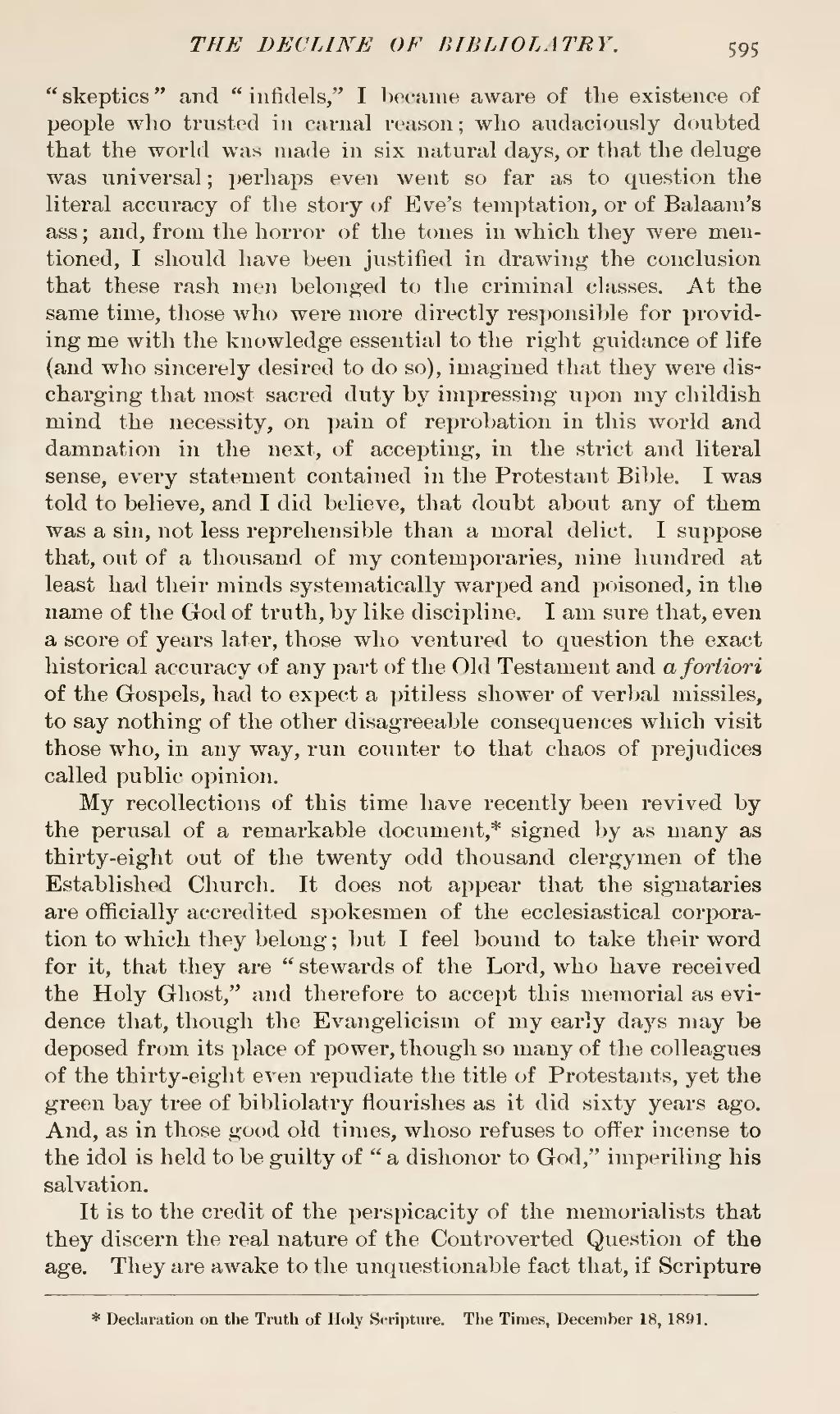"skeptics" and "infidels," I became aware of the existence of people who trusted in carnal reason; who audaciously doubted that the world was made in six natural days, or that the deluge was universal; perhaps even went so far as to question the literal accuracy of the story of Eve's temptation, or of Balaam's ass; and, from the horror of the tones in which they were mentioned, I should have been justified in drawing the conclusion that these rash men belonged to the criminal classes. At the same time, those who were more directly responsible for providing me with the knowledge essential to the right guidance of life (and who sincerely desired to do so), imagined that they were discharging that most sacred duty by impressing upon my childish mind the necessity, on pain of reprobation in this world and damnation in the next, of accepting, in the strict and literal sense, every statement contained in the Protestant Bible. I was told to believe, and I did believe, that doubt about any of them was a sin, not less reprehensible than a moral delict. I suppose that, out of a thousand of my contemporaries, nine hundred at least had their minds systematically warped and poisoned, in the name of the God of truth, by like discipline. I am sure that, even a score of years later, those who ventured to question the exact historical accuracy of any part of the Old Testament and a fortiori of the Gospels, had to expect a pitiless shower of verbal missiles, to say nothing of the other disagreeable consequences which visit those who, in any way, run counter to that chaos of prejudices called public opinion.
My recollections of this time have recently been revived by the perusal of a remarkable document,[1] signed by as many as thirty-eight out of the twenty odd thousand clergymen of the Established Church. It does not appear that the signataries are officially accredited spokesmen of the ecclesiastical corporation to which they belong; but I feel bound to take their word for it, that they are "stewards of the Lord, who have received the Holy Ghost," and therefore to accept this memorial as evidence that, though the Evangelicism of my early days may be deposed from its place of power, though so many of the colleagues of the thirty-eight even repudiate the title of Protestants, yet the green bay tree of bibliolatry flourishes as it did sixty years ago. And, as in those good old times, whoso refuses to offer incense to the idol is held to be guilty of "a dishonor to God," imperiling his salvation.
It is to the credit of the perspicacity of the memorialists that they discern the real nature of the Controverted Question of the age. They are awake to the unquestionable fact that, if Scripture
- ↑ Declaration on the Truth of Holy Scripture. The Times, December 18, 1891.
